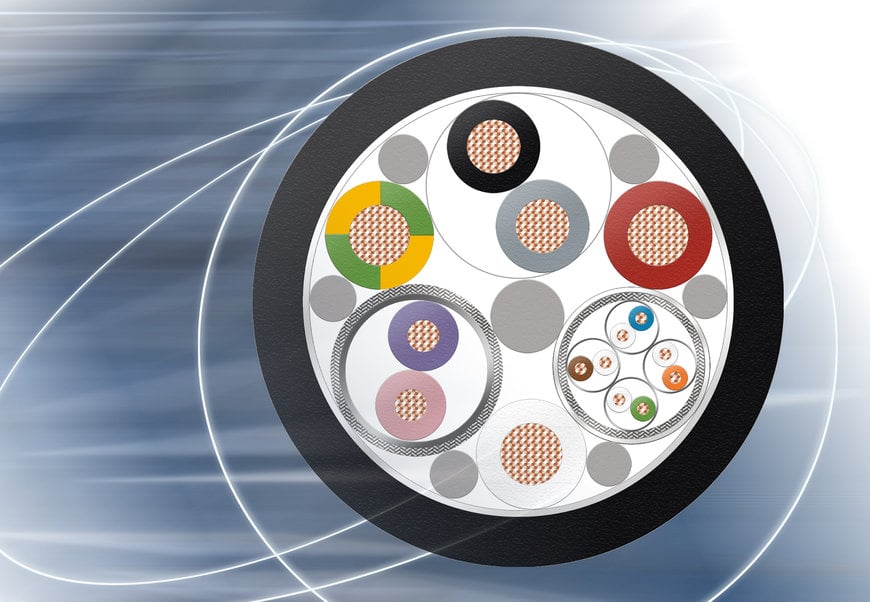Leoni with new DC cable family for more efficient production - off into the future with DC INDUSTRY
Leoni, global solution provider for energy and data management in the automotive sector and other industries is working on the DC-INDUSTRY project together with other companies from industry and four research institutes.

- Better use of electricity from renewable energy sources for industry
- Funding by the Federal Ministry of Economics and Energy (BMWi)
The aim is the efficient use of direct current (DC) in production. The project is funded by the Federal Ministry of Economics and Energy (BMWi) and will run for three years.
The Leoni AG is with it’s business units Automation & Drives und Tailor-Made Products is one of 39 companies participating in the DC-INDUSTRY 2 research project. Together, the two business units have developed a new cable family. This includes both cables for power transmission and hybrid cables, which enable both power and Ethernet data transmission at up to 10 GBit/s.
A challenge for cable and system suppliers is the long-term experience with cables that are operated over a complete life cycle under a DC voltage between 400 and 850 V. Preliminary tests have shown that insulation materials sometimes react differently to the load with AC (alternating current) or DC voltage. In DC-INDUSTRY 2, Leoni is working together with another cable manufacturer and universities on test series that examine various materials with regard to their DC continuous load.
DC INDUSTRY is a trend that has been growing rapidly in recent years. Driven by the constant quest for more efficient and thus cheaper production, European industry is demanding a way to replace the conventional alternating current grid (AC grid) with a direct current grid (DC grid), which is much more efficient in certain areas.
Technically, the manufacturers of the various industrial components face a major challenge. While AC technology has been further developed and optimized for decades, essential components of a DC grid in an industrial environment are still in the early stages of development in some cases.
The DC-INDUSTRIE project funded by the Federal Ministry of Economics and Energy (BMWi) and its successor project DC-INDUSTRIE 2 have the task of bringing together manufacturers and users in order to develop a standard for highly efficient system solutions.
Depending on the application, large increases in efficiency of up to 30% are possible. The DC technology is particularly high-performance, for example, when operating a high-bay warehouse. There, a large part of the electrical energy is used to move the goods to their storage location. As things stand today, the braking energy generated during transport is converted into heat by mechanical or electrical brakes. By comparison, in the DC grid it will be possible to feed the braking energy generated back into the DC grid with the aid of bidirectional inverters, thus ensuring that it can continue to be used industrially.
Another major advantage for the industry is the direct feed-in of renewable energies such as photovoltaic systems and the easy connection of energy storage systems. This makes it more attractive for companies to produce some of the energy supply via renewable energies themselves.
Interest in the DC-INDUSTRY 2 project has recently increased significantly with the debate on "green production" and the ever-increasing share of renewable energies. Leoni is proud to make an important contribution to the energy turnaround and at the same time develop the future of industrial cabling.
www.leoni.com

